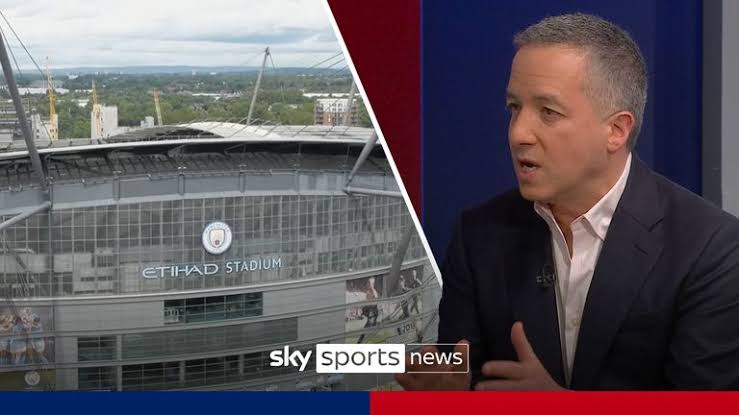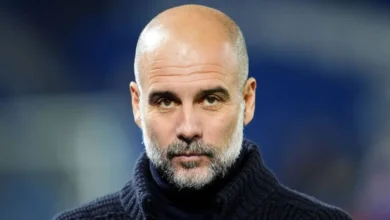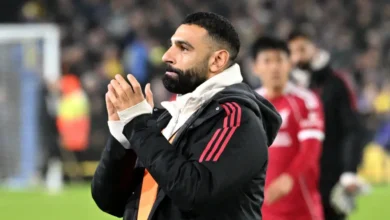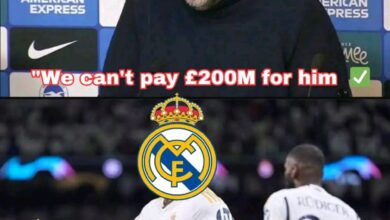Manchester City Source Warns New Premier League Rule Could Stop Superstars Like Haaland From Ever Coming Again

The winds of change are blowing through English football again, and this time, they are carrying a storm that could shake the financial foundations of the Premier League. According to reports from *GiveMeSport* and *TBR Football*, the Premier League is considering a new rule that could completely transform how clubs spend money — and according to one insider from Manchester City, it could stop the arrival of world-class superstars like Erling Haaland in the future.
This revelation, shared by renowned broadcaster Jim White, has sent shockwaves across England. For more than a decade, the Premier League’s *Profit and Sustainability Rules (PSR)* have been the backbone of its financial fair play system, limiting how much clubs can lose across a rolling three-year period. But the new model being proposed — called **Top-to-Bottom Anchoring (TBA)** — would be an even tighter financial leash.
Under this system, clubs would no longer be allowed to spend freely based on their wealth or global brand. Instead, their spending power would be linked to the earnings of the *lowest-earning* club in the Premier League. The move, according to the league’s leadership, is aimed at promoting sustainability and fairness. But to some clubs — especially Manchester City — it feels like a direct attack on ambition, competition, and the ability to attract world-class players
To understand the panic around this potential rule, we must look back at the **Profit and Sustainability Rules (PSR)**, introduced ahead of the **2013/14 Premier League season**. These rules were designed to prevent financial disasters — the kind that saw clubs like Portsmouth collapse under debt.
The PSR stated that no club should record losses exceeding £105 million over a three-year period. For years, this framework has allowed clubs to spend heavily but within limits, as long as their revenue could justify it. Rich clubs like Manchester City, Manchester United, and Chelsea managed to navigate this system well, using commercial deals and global reach to remain compliant while signing superstars.
However, growing criticism from smaller clubs and pressure from UEFA to align domestic regulations with European ones have forced the Premier League to reconsider its approach. That’s where this new TBA model comes in — a financial cap system that could change English football forever.
The top-to-Bottom Anchoring (TBA) model is built on a simple but powerful idea: tie the richest clubs to the poorest.
Under this model, the total amount a club could spend on player wages, agent fees, and transfer cost would be capped at five timesthe income earned by the bottom club in the Premier League from broadcasting and prize money.
To put this in context, during the 2022/23 season, **Southampton** finished bottom of the Premier League and still earned **£109.2 million** in income. If that same figure were used today as the baseline, it would mean that every club could spend up to **£546 million** per season on wages, agent fees, and transfer expenses combined.
On paper, this looks fair — even generous. But according to Manchester City insiders, it’s not as simple as it sounds.
“Now, I spoke to somebody from Manchester City last night,” White said, “and basically, their argument is that you can forget the Haalands coming to the Premier League in future, because the anchoring system would eliminate that happening.”
This single sentence says everything about how seriously top clubs are taking the proposal.
The fear is clear: if this rule passes, England might no longer be able to attract or keep global superstars. Big signings like Haaland, Kevin De Bruyne, or even Mo Salah might become impossible under such restrictions. The Premier League, which has prided itself as the richest and most competitive league in the world, could lose its biggest draw — its stars At first glance, the new TBA model seems to encourage equality. But deep down, it threatens to punish success.
Manchester City, Liverpool, Manchester United, Arsenal, Chelsea, and Tottenham — the so-called Big Six — operate with massive global commercial income. They sign sponsorship deals worth hundreds of millions, sell shirts across continents, and compete in lucrative European competitions. These financial powers are what allow them to sign players like Haaland, Declan Rice, and Cole Palmer.
But if the TBA rule comes into effect, it would mean that even if a club earns £700 million in total revenue, it could still be limited to the same spending cap as clubs earning half that amount — simply because of what the bottom team makes.In short, the new model would **punish clubs for being successful
A City insider reportedly told Jim White that such a model would be “anti-competitive” and would strip English football of its glamour. “Why would players like Haaland, Mbappe, or Vinicius Jr choose the Premier League if other leagues like La Liga or Serie A let them earn more?” the source asked.That question cuts right to the heart of the issue.
The Premier League has become a global spectacle largely because of its financial power. English clubs have been able to buy the world’s best players, pay huge wages, and dominate the transfer market. A rule like TBA would change that dynamic completely.
If Real Madrid, Bayern Munich, or Paris Saint-Germain are not bound by similar restrictions, they will immediately become the most attractive destinations for elite talent. The English league could turn from the world’s footballing superpower into a second-choice destination. Clubs outside England would celebrate such a rule — because it would finally end the Premier League’s spending dominance. But for clubs like Manchester City, it would feel like a cage.
To make things more complicated, the Premier League is also considering adopting another model inspired by UEFA’s financial framework: the Squad Cost Ratio (SCR)**.
This system allows clubs to spend **no more than 70% of their income** on player wages, agents, and transfer fees. It’s a measure designed to ensure clubs live within their means According to Adam Williams Head of Football Finance and Governance at GRV Media, the Premier League is thinking about introducing its own version of this rule — but with a slightly looser cap of 85% instead of 70%.
This means a club’s total spending could not exceed 85% of its overall income — which, again, would hit the biggest spenders the hardest.
And here’s the twist: if the vote scheduled for November 21st, 2025 passes, the Premier League could adopt both the TBA and the SCR systems together.
That would be the strictest financial control in the league’s history.
Manchester City have long been under the microscope for their financial operations. Their incredible rise under Sheikh Mansour has led to enormous scrutiny, including the ongoing saga of their 115 financial charges** from the Premier League.
Although City have consistently denied any wrongdoing, the club knows it is constantly being watched. And now, with the TBA and SCR proposals on the table, City insiders believe this could be yet another way to limit their growth.
Jim White’s City source reportedly said the club views the move as a “power grab” by smaller clubs, who feel threatened by City’s continued success.
From City’s perspective, this isn’t about fairness — it’s about politics
The final decision rests on the **Premier League vote** in late November. All 20 clubs will have a say, and a majority is required for any rule to pass.
Smaller clubs like Burnley, Brentford, and Bournemouth are expected to support the new restrictions, as they would help narrow the financial gap between them and the giants. But the Big Six — especially Manchester City — are likely to resist.
If both the TBA and SCR systems are passed, clubs will have to completely reshape how they manage finances. Transfers will become more strategic, long contracts might disappear, and lavish wages could be a thing of the past.The Premier League could enter a new era — one where financial freedom is gone
Over the past two decades, the Premier League has built its empire on money. Television deals, sponsorships, and global fan bases have made it the richest and most-watched league in the world.
But that success has also brought resentment from other leagues and smaller clubs who can’t compete. The Premier League’s dominance has often been criticized as unsustainable — a bubble waiting to burst.
This new rule could be seen as an attempt to “fix” that imbalance. However, as City’s insider warned, fixing one problem might create another: **a decline in quality and attraction Fans tune in to watch stars like Haaland, Salah, Saka, and De Bruyne — not to watch a financially balanced but less exciting competition.
If the biggest stars start avoiding England because of wage restrictions, the league’s global value could fall, affecting everyone — from TV networks to fans
The debate around financial control in football has never been more intense
The proposed Top-tBottom Anchoring (TBA) rule aims to create fairness, but it also risks taking away what makes the Premier League special — ambition, competition, and star power.
Manchester City’s insider may have sounded alarmist when they said “you can forget the Haalands coming to the Premier League,” but their warning hits deep. The Premier League’s identity has always been about the best playing with the best — and if this rule passes, that may no longer be true.
As the November vote approaches, all eyes will be on the 20 Premier League clubs. Will they vote for equality or excellence? For control or competition? Whatever the decision, English football will never be the same again.















